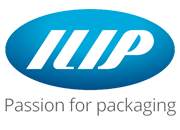REDUCING, RECYCLING AND USING RENEWABLE RESOURCES: ILIP SIGNS A PLEDGE TO ENVIRONMENTAL SUSTAINABILITY
From 100% r-PET closed-cycle production to eco-design and bioplastics, through to smart packaging reducing waste: the brand’s solutions safeguard the environment.
VALSAMOGGIA (BO, 20th August 2019) – ILIP’s concrete commitment to environmental sustainability comes in the form of “3 Rs”. The company part of ILPA Group, European leaders in plastic processing, has put together its Sustainability Pledge, a document containing concrete actions to help save the environment, which the company is implementing, along with the goals it is committed to achieving in future. An holistic and objective approach to the issue, which comes in the form of “three Rs”: Reducing, Recycling and Renewable Resources.
“Reducing” means limiting the use of plastic materials, with reduced packaging weight and thickness, but also limiting food waste and protecting food all along the supply chain. The key word is “fit4purpose”: the right packaging for each product to minimise the use of plastic while retaining impeccable performance.
“Recycling” means recovering post-consumer plastic raw materials and transforming them into new packaging in r-PET, producing packaging that is 100% recycled PET and managing the entire supply chain to create a virtuous system of circular economy. The advantage is that ILIP has closed its r-PET production cycle, for total control over the supply chain and the origin of the materials used.
“Renewable Resources”: from PLA to state-of-the-art bioplastics, such as Mater-Bi by Novamont, ILIP boasts one of the most wide ranges of packaging, disposable tableware and deli-food containers in alternative materials to fossil polymers.
“With our Pledge to Sustainability, we want to provide our response to the market’s and to consumers’ attention to this issue – explains Ballini, General Manager of ILIP – We have always adopted an holistic and objective approach, which sees packaging as part of the solution, and not the problem, of the environmental impact of a commercial supply chain such as agrifood. At the same time, we are at the cutting edge when it comes to tackling the problem of fossil fuel based raw material limits, with the introduction of the closed cycle of recycled PET and the use of renewable bioplastics”.
ILIP’s commitment, rendered formal in this Sustainability Pledge, has a long story behind it. Indeed, ever since 2002, the brand has used bioplastics to produce disposable tableware, food service and fresh produce packaging that are certified as compostable and conforming to European standard EN13432.
In 2010, ILIP embarked on a mission to reduce the average weight of fresh produce packaging. In 2018, the raw material saving was around –9.10%, the equivalent of a reduction of more than 3,000 tonnes of PET, r-PET and PP. Project ILIP Eco-Design was launched in 2019, with the aim of reducing the basic weight of specific lines of punnets by a further 1% over the next 3 years..
Since 2012, the group from the ILPA Group is also a member of Save Food, the initiative launched by the FAO and by Interpack-Messe Düsseldorf to tackle the issue of reducing food waste, where packaging plays a main role. Ever since, an investigation is being conducted into the relationship between packaging and packaged food, in partnership with university research centres, to improve the features of packaging and minimise their environmental impact, prolonging the shelf life of packaged food. The main result has been “Life+”, the active packaging that “prolongs the life” of fruit, such as berries, strawberries, cherry tomatoes and grapes.
ILPA is also at the head of the game in achieving a circular economy, since it is one of the few groups at European level to have vertically integrated the cycle of r-PET, from post-consumer bottles to a new packaging for food, guaranteeing both origin and traceability. Today, approximately 30,000 tonnes of post-consumer PET are recycled each year, the equivalent of the quantity of PET bottles consumed and recovered throughout the whole of the Emilia-Romagna region. A second raw material is thus obtained, avoiding the production of the same quantity of virgin PET which, in terms of CO2 emissions, corresponds to approximately 75,000,000 kg of CO2. The Project ILIP 100% r-PET Closed Loop was also launched in 2019, with the aim of progressively and solely producing packaging in 100% r-PET and guarantee the traceability of the supply chain managed and controlled by ILIP.
The articles resulting from projects Eco-design and 100% r-PET Closed Loop can be identified by dedicated logos applied to the base of the punnets.
